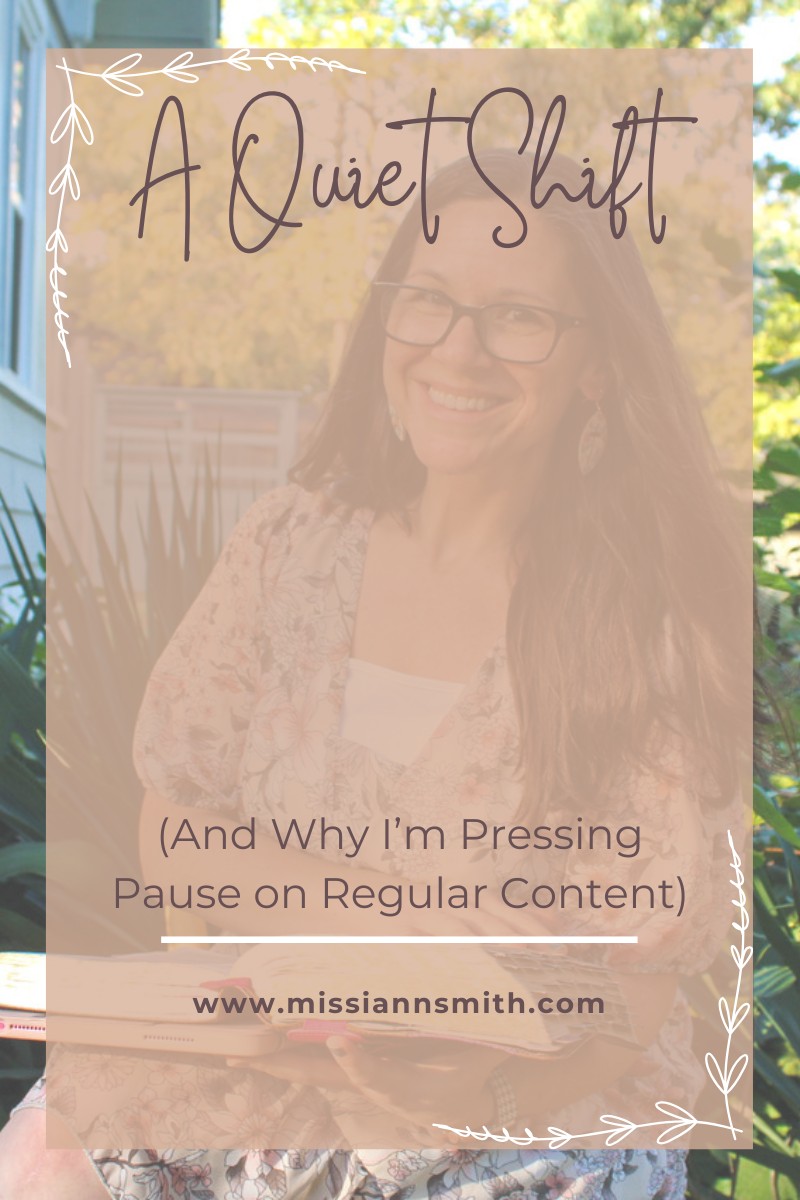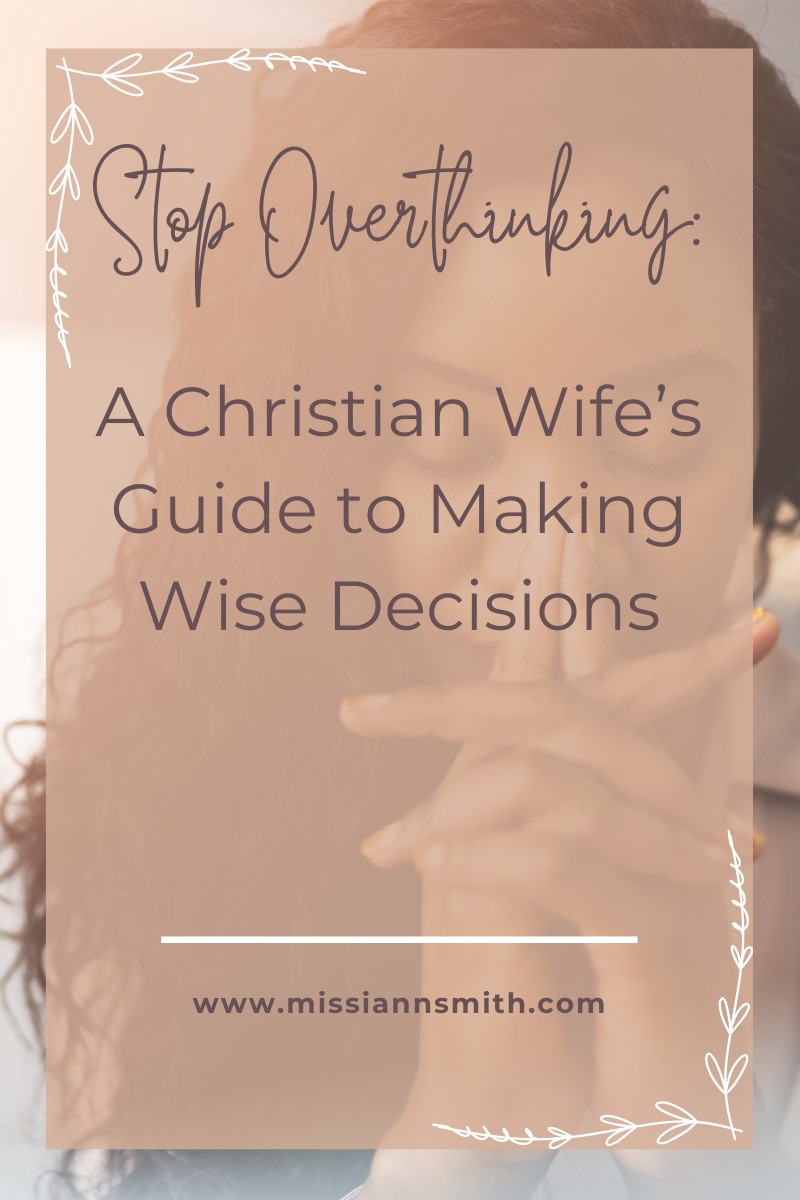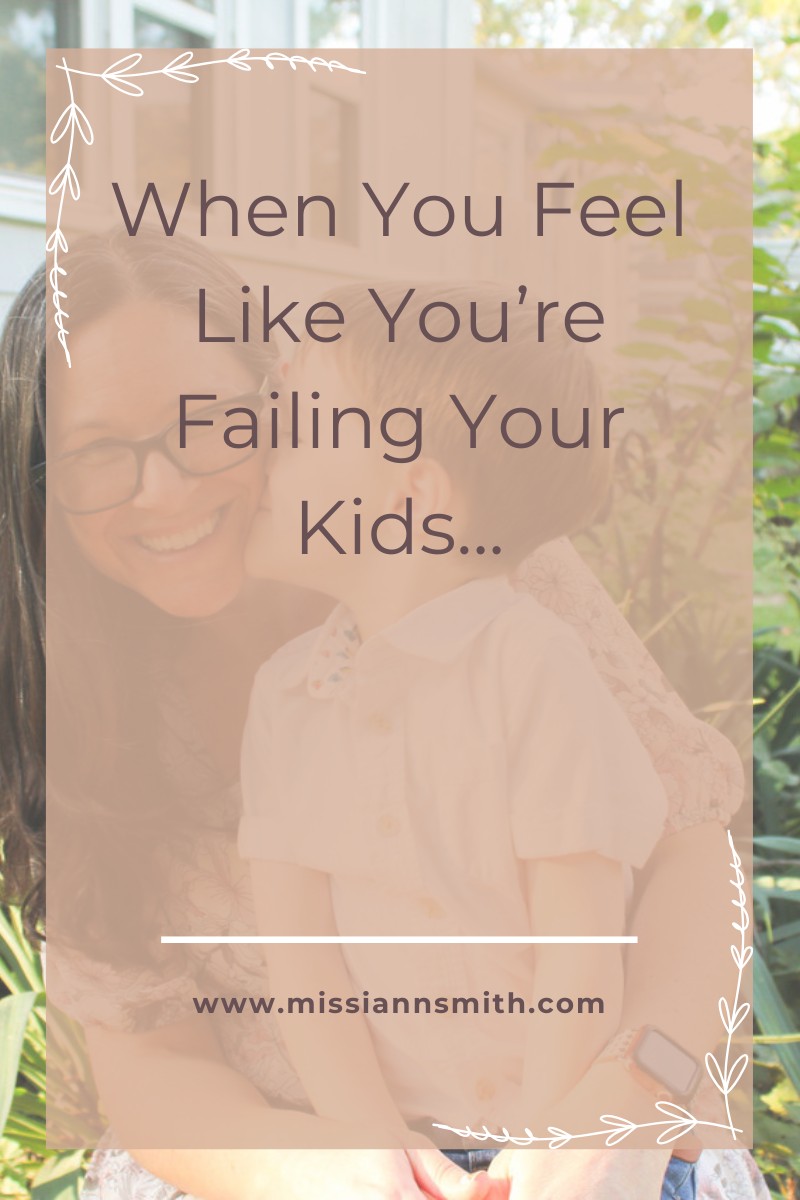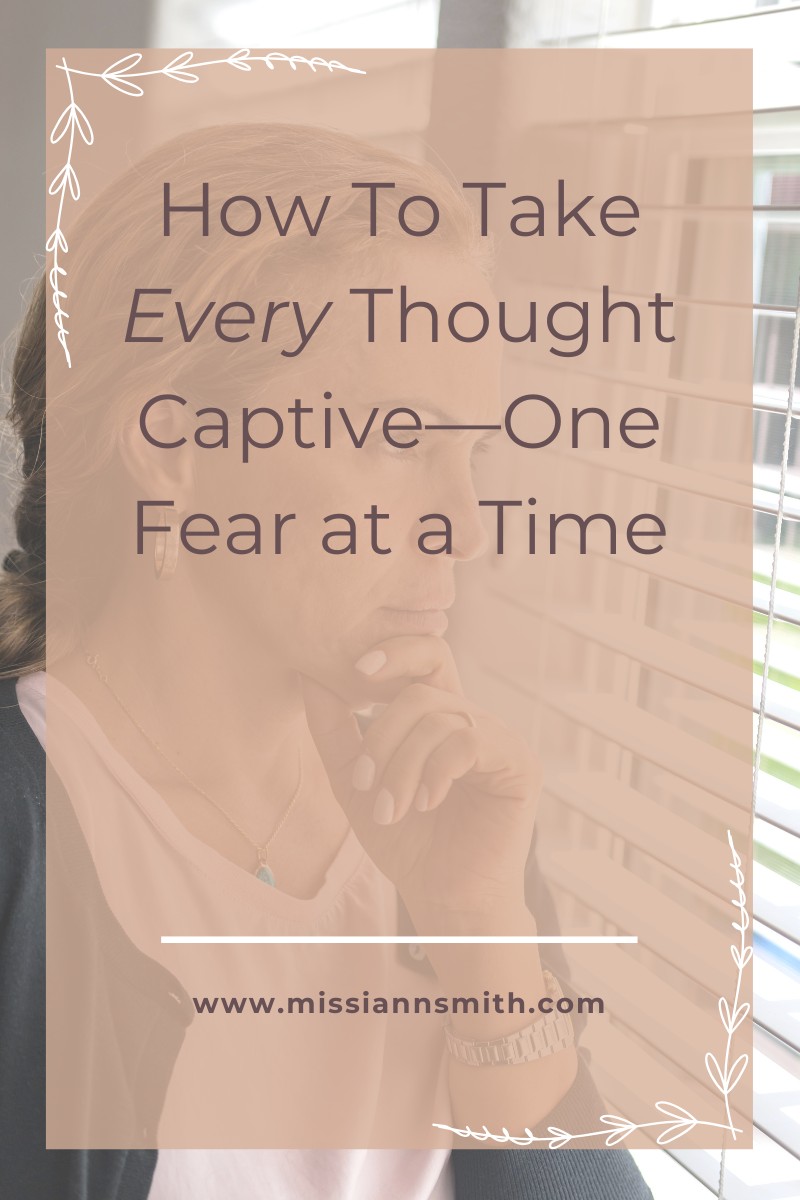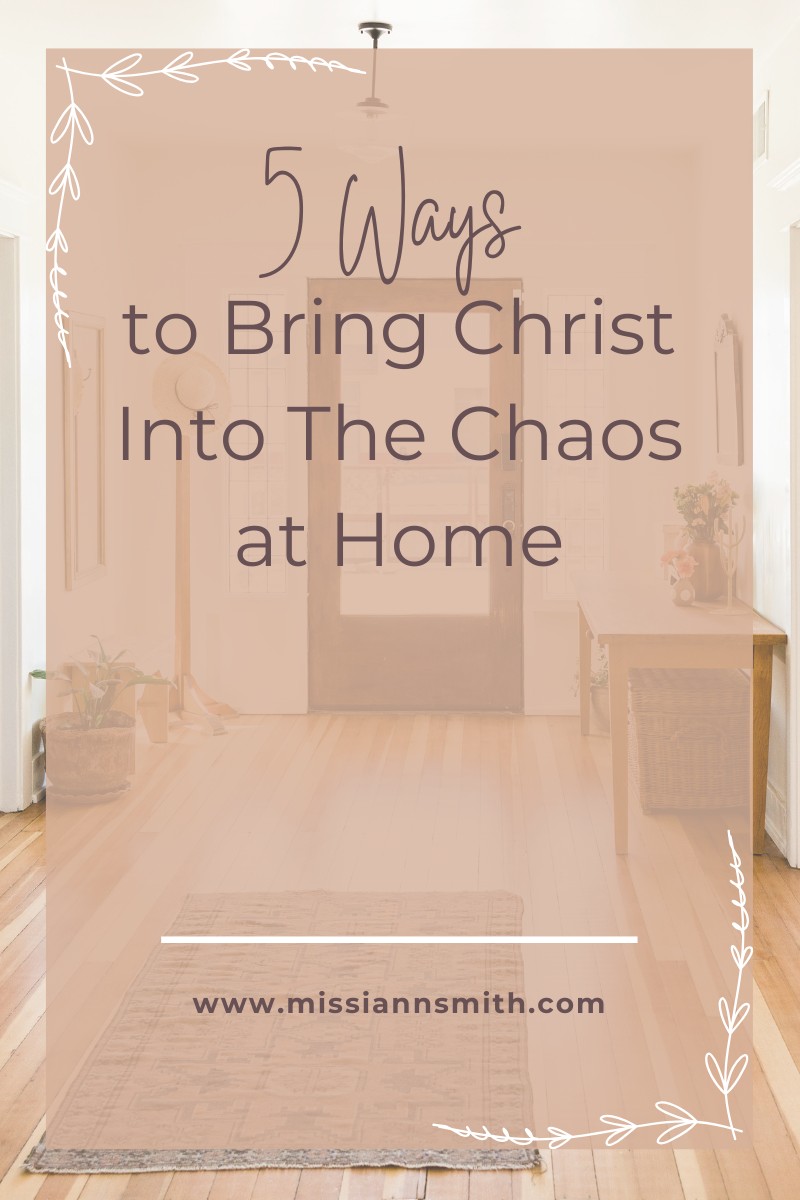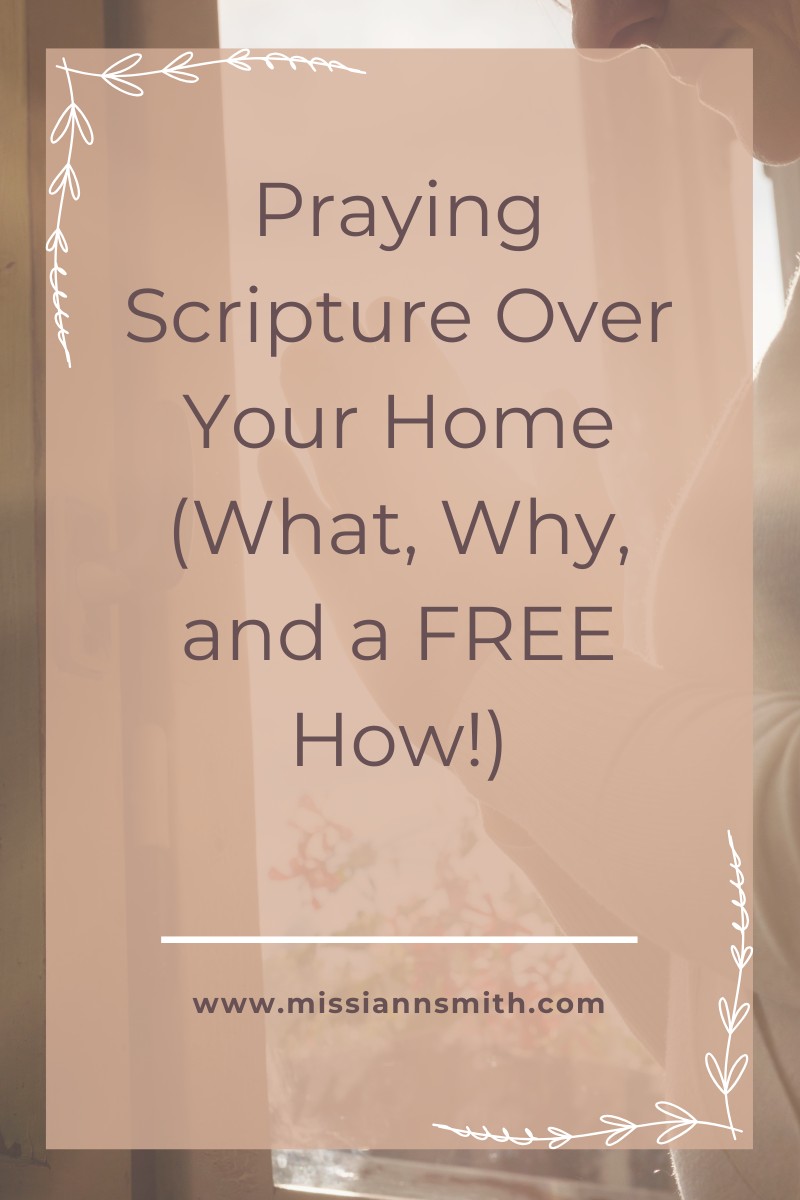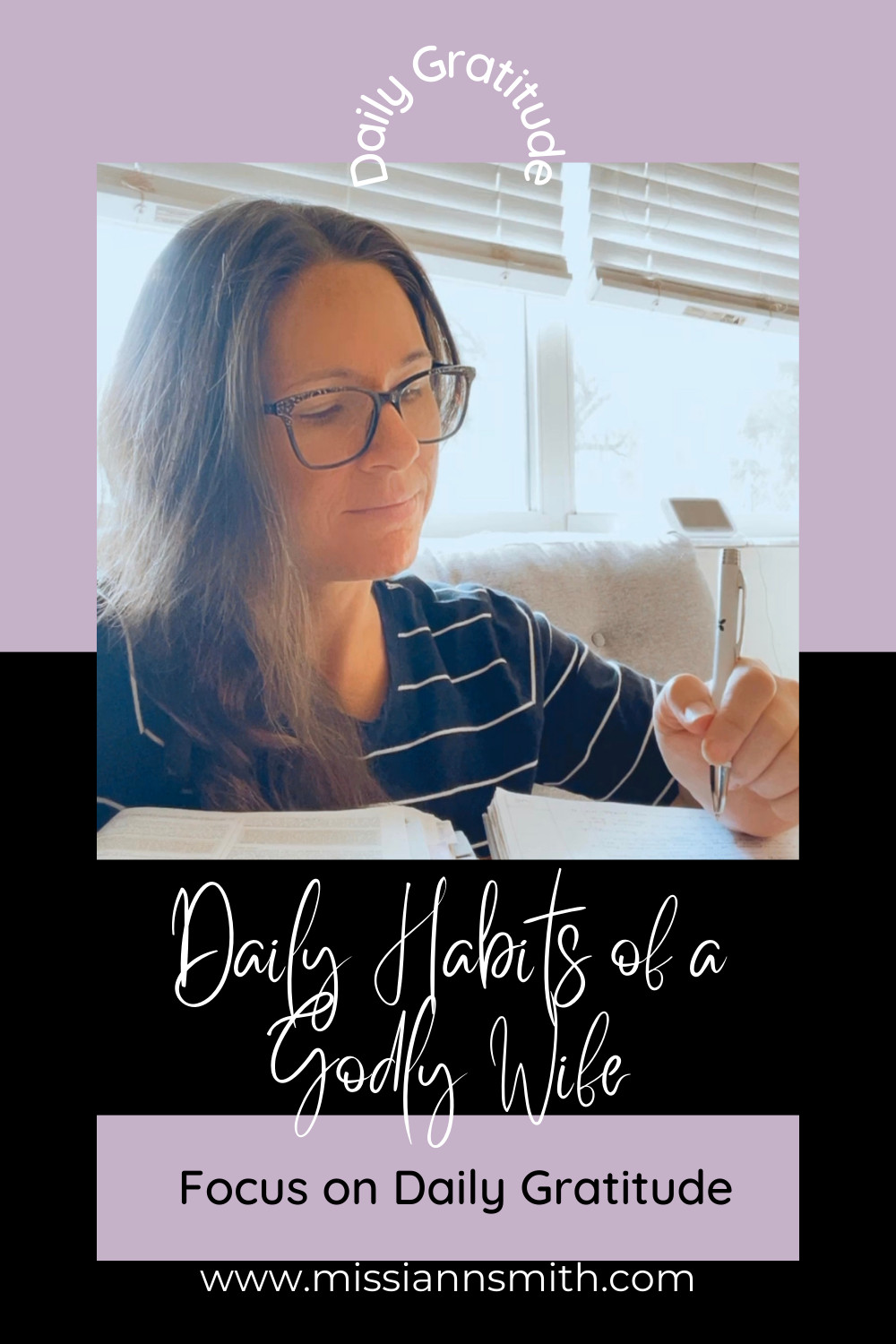
We've all heard this before:
"I think, therefore I am."
As trite as that is, there is truth in that what we focus on is what takes priority in our hearts and minds.
What you think about, grows.
When you focus on how your husband didn't take out the trash, or didn't take you out for your anniversary, those things will become the most important factors, and your heart will harden towards him.
On the other hand, if you focus on the fact that he goes to work every day to provide for your family, or how he complimented the last meal you cooked, your heart will soften towards him.
BUT - practicing daily gratitude towards your husband is only one factor in cultivating a heart of thanksgiving and a spirit of godly contentment.
We must also focus on Christ as our sufficiency in ALL things.
Sweet friend, if you have given your life to Christ and make it your goal to obey and follow Him, then you know you have a reward coming in heaven.
Christ IS our reward, and we are promised eternity with Him.
Making Him our focus, being grateful for that promise, considering all of His attributes, remembering all of the blessings He's poured out on us - THAT is how we ensure a soft heart that finds contentment in ALL things.
Here's a tangible tip for you: keep multiple gratitude journals.
- One for general gratitude.
- One for thankfulness towards your husband.
- One for appreciation of your children (and bonus kids!).
One November, I kept a gratitude journal for the month for my husband and each of the kids (my bonus kids and my bio daughter). On December 1, I left their journals on their pillows.
Another year, I kept one for my husband for the entire year, from January 1-December 31, and gifted it to him on New Year's Eve.
Intentionally writing down words of thankfulness, focusing on what we appreciate about them, whether it's acts of service they performed or considering a quality about their personality or an attribute they possess, helps us to focus our hearts on things that are true, pure, lovely, and praiseworthy, as Philippians 4:8 instructs us.
Cultivating a heart of daily gratitude is such an important part of growing as a godly wife.
I'd love to hear - have you ever kept a gratitude journal? Is that something you would like to do for your husband or children?
Share in the comments!
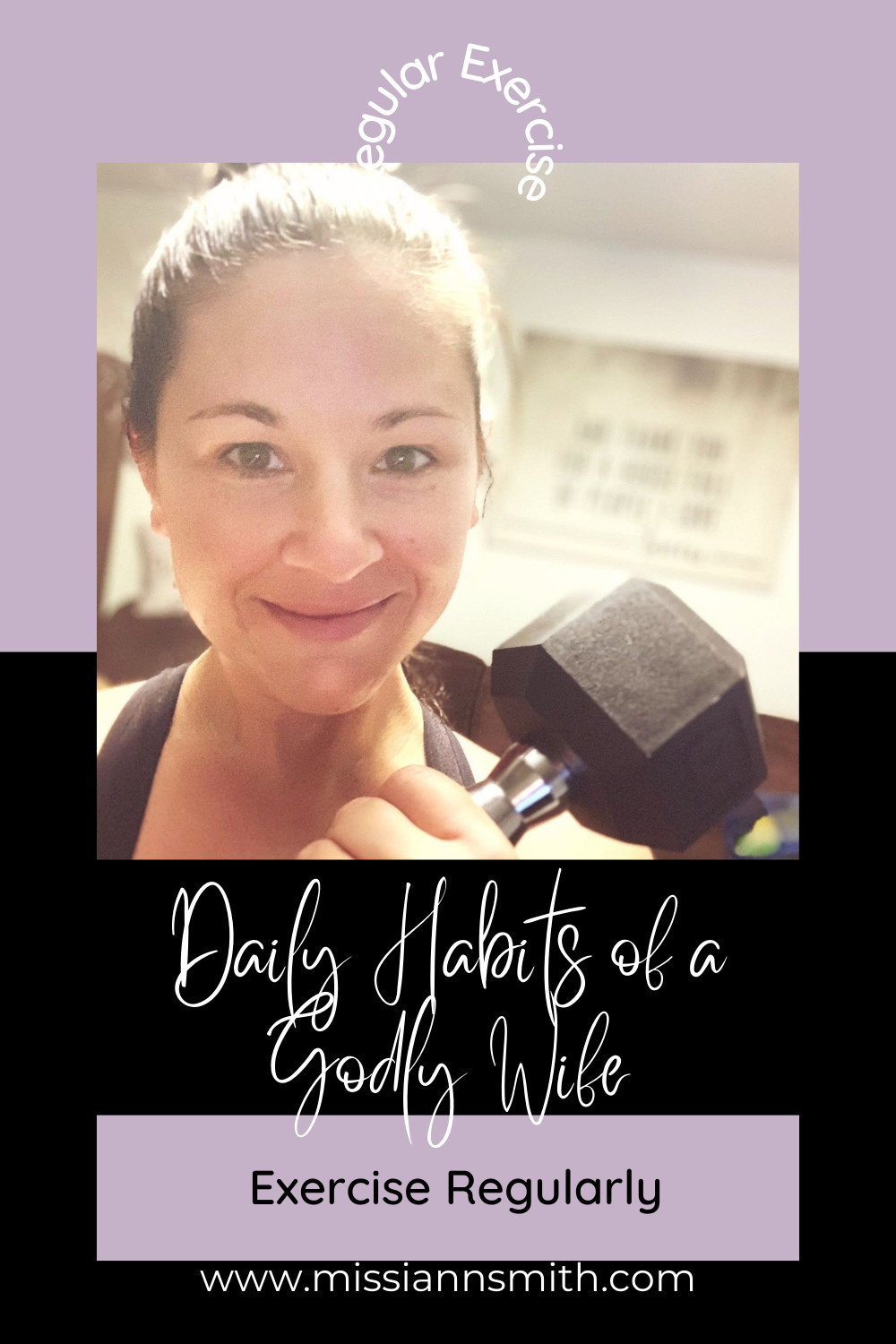
You know...but do you KNOW?
Scripture tells us our bodies are God's temples...and we shouldn't destroy God's temple.
Have you considered that a lack of exercise could be contributing to the destruction of your body, which is God's temple?
Click through to the full post for some tips on how to get started, a great FREE resource, and some ways that regular exercise can help your growth as a godly wife!
Read more...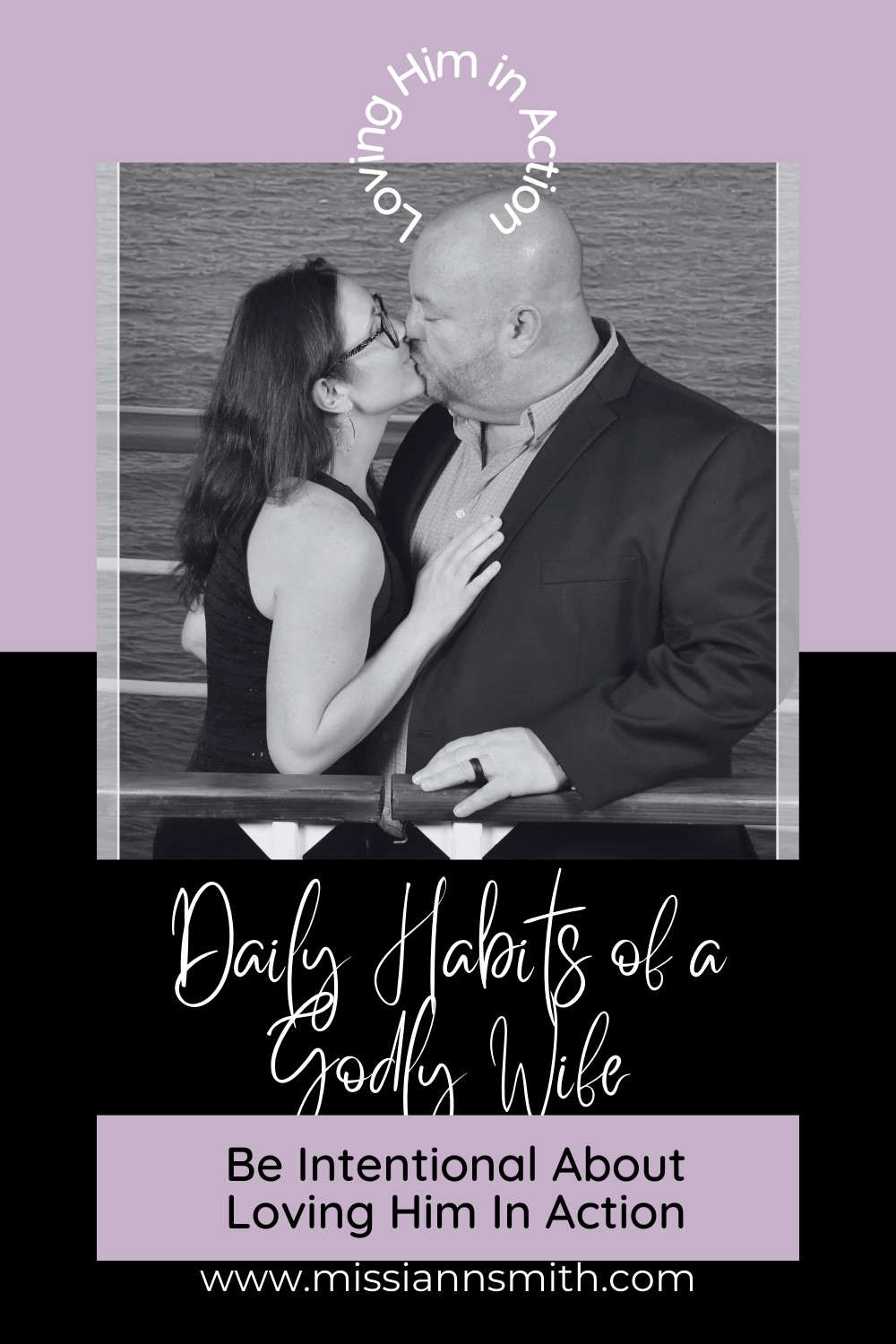
Love is not a feeling. Love is a commandment, and withholding it from your husband because you don't feel an emotion connected to it is simply disobedience to God.
Being a godly wife means loving your husband IN ACTION, day in and day out, regardless of your feelings or emotions.
Click through to the full post for tips and resources on how to be intentional about loving your husband in action every day!
Read more...
Worship. What's your first thought?
Most likely you thought of your favorite song from Sunday morning, or your local Christian radio station.
How can you cultivate a lifestyle of worship?
Check out the full blog post as we talk through what it would look like to live out a lifestyle of worship, and to grab your free printable of the Daily Habits of a Godly Wife to help you develop your own rhythm and routine.
Read more...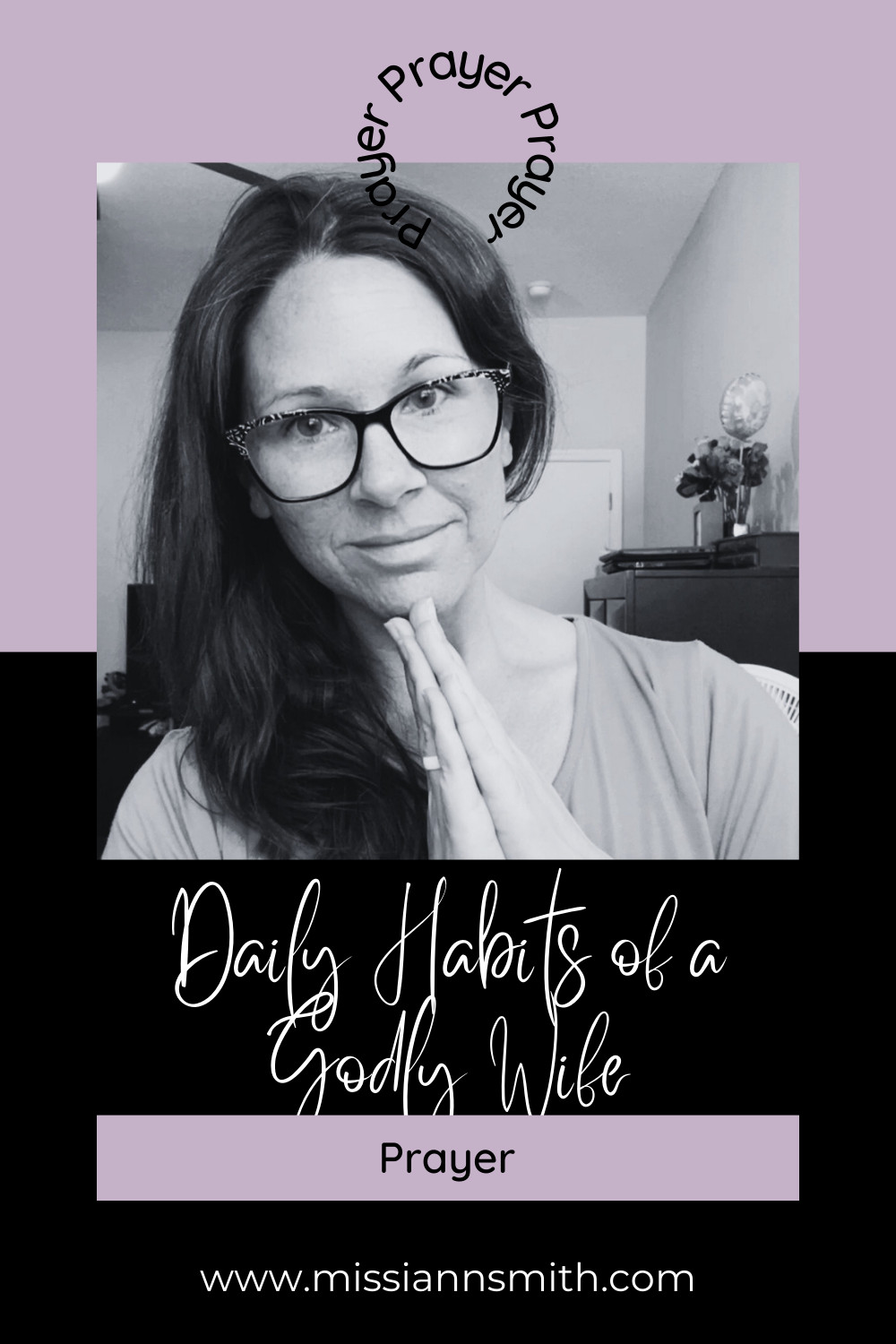
Last week we talked about making daily Bible study a habit in order to grow as a godly wife.
Today, let's talk about prayer.
Most of us would say that we pray regularly. We tell friends and family and co-workers that we'll pray for them.
Sometimes we even do pray for them, right there on the spot, or we have our handy prayer journal where we write them down and pray over those requests.
This is important, and such a good routine to get into!
But...do you regularly pray for your husband, for your children, and for yourself?
For your husband
I know many wives I support are praying for their husband to be delivered, to find Jesus, or to be convicted of certain sins.
While this is well and good, I want to offer some additional prayer points that we need to be covering for our men.
- His physical health
- His protection from the enemy's tactics over his body, mind, and spirit
- Favor at work, that he would do his job with efficiency and be well-respected
- Ministry opportunities
- Mentor relationships (that he would find an older, godly mentor and also someone younger to be a mentor himself)
- Growth in wisdom and discernment
- A deeper desire to know and follow God's will
- That he would fall more deeply in love with Jesus, and with you, his wife
- That he would love you as Christ loves the Church
For your children
It can become habit to pray for our children to grow closer to the Lord. This is a necessary prayer and we should always ask God to draw them closer to Himself. Here are several more prayer points to consider:
- Their physical health
- Their hearts to be soft towards God, and towards others
- Protection from the enemy, especially over their minds in light of how our current society is trying to deceive them
- Godly friendships
- Wisdom in making decisions
- Discernment in choosing friends, and choosing their future spouse
- Their future spouse, that they are growing in godliness and spiritual strength and wisdom
- They would desire to glorify God each day of their lives, from the most mundane act of picking up something a person dropped, to the most heroic in serving and saving others
- Joy would abound in their hearts as they rest in Jesus as their sufficiency
- That they would honor you and their father, as God commands
For yourself
This is an area we often find imbalanced. Either we're praying for God to bless us and neglecting to pray for growth, or we're praying for conviction and neglecting to ask for things we simply want. Consider adding these prayer points to your daily prayers over yourself.
That God would reveal to you His instructions for godly wives, and equip you to follow them.
That God would cultivate a deeper desire to obey Him, and to please and serve your husband.
For more joy in motherhood, and strength to intentionally cast off self-pity
Blessings over your home, those who enter it, and grace as you pursue hospitality
Your physical, spiritual, emotional, and mental health
Protection from the enemy's tactics - wisdom and discernment to recognize them when they come
That God would equip you to submit to, respect, honor, and obey your husband
AND...
Birth Mom or Birth Dad
If you're part of a blended family where the birth mom and/or birth dad are still involved, pray over them as well:
They would come to know, or grow in the knowledge of, Christ as their Lord and Savior
Their relationship with their child(ren) would be healthy, thriving, and close
God's blessing over their families and marriage, if applicable
Protection over their physical, spiritual, and mental health
I would love to hear: are these already part of your daily prayers, or are these some points that are often forgotten or overlooked?
What would you add to these daily requests?
To grab your free printable with ALL the daily habits of a godly wife, click here!


